Nordic sun still shines on assembly democracy
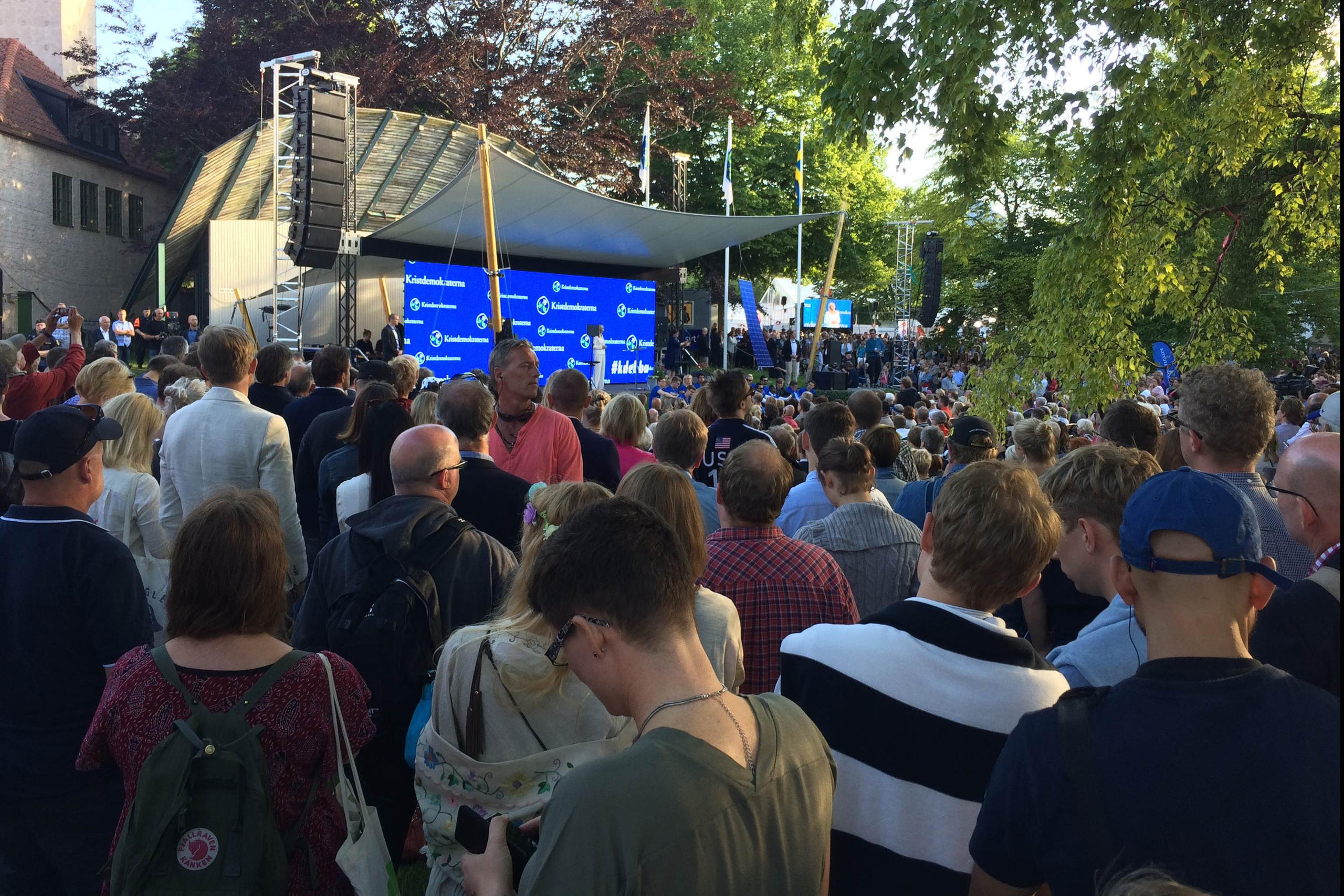
The first initiative for a summer democracy festival on a remote Baltic island dates back to legendary Swedish Prime Minister Olof Palme. Fifty years and a social media revolution later, assembly democracy is great again – at least for a few days in summer across Scandinavia.
These days, it may take hours for the short walk across the medieval town of Visby on the island of Gotland in the middle of the Baltic Sea.
At every corner of this UNESCO world heritage site, people have gathered to listen to tech guys at market stands promoting their new e-voting solutions. If you dare to stop in the middle of the narrow stone-laid Donner street, you will immediately be surrounded by campaigners asking you to sign their political initiative – or just to lend them your ear for a minute.
The usually quiet holiday resort of Visby for one week turns into a bustling centre of Swedish democracy.
Literally everybody seems to be here: All these TV personalities, party leaders and most government ministers. If you are curious enough you will find your way to many of those “secret” meetings in the normally hidden gardens and courtyards of Visby, a town of no more than 20’000 residents, which during this week hosts grows more than 100,000 people.
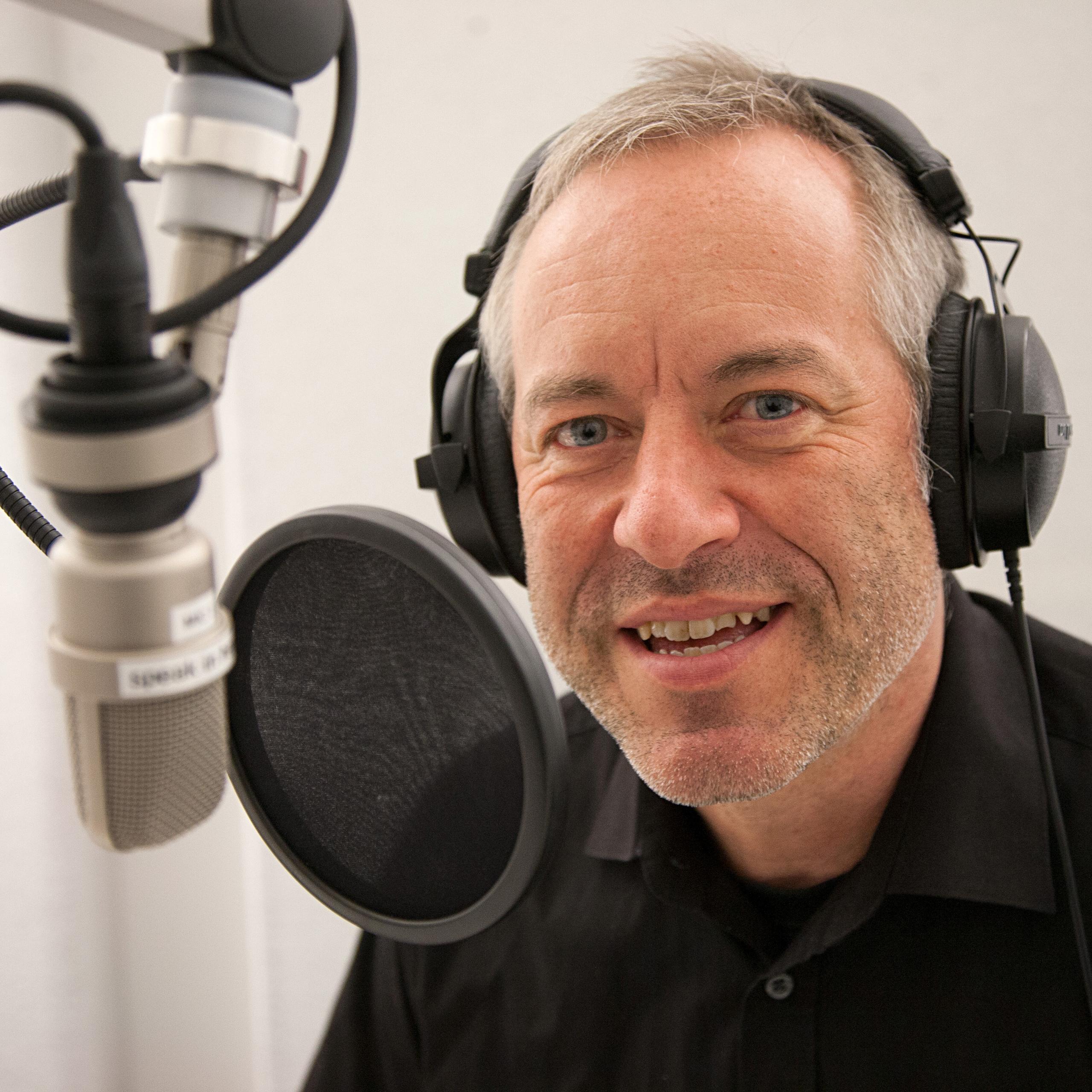
For many years, “Almedalsveckan”External link – as this democracy festival is called, referring to the original location, the city park – was a mainly a stage for rather the leaders of Sweden’s main political parties where they used to launch new ideas during the quiet summer season.
When I visited the Visby political week for the first time 20 years ago, there were a few hundred participants at less than 50 workshops. The highlight of the day was a speech given by leaders of the main political parties at the Almedalen Park.
The man who started this tradition in 1968 was the leader of Sweden’s Social Democratic party, Olof Palme, who used to address this audience on Gotland from a lorry trailer.
4,000 events in one week
The big change came a few years ago, with the smartphone and social media revolution.
As in other democracies Swedish politics became much more intense and fragmented, new polarising parties won seats in parliament and the traditional media underwent a major transformation.
Bucking the trend and perhaps surprisingly, assembly democracy was reinvented. The Visby festival opened up to all kinds of stakeholders in the public sphere.
More than 4, 000 different events are scheduled, according to this year’s official programmeExternal link. Many of them can be followed live over the internet (provided you understand Swedish or you can also participate in one of the more than 100 seminars in English).
This text is part of #DearDemocracy, a platform on direct democracy issues, by swissinfo.ch.
Most importantly, the new dynamism of “Almedalen” does not end after a week in the medieval town of Visby.
Danish equivalent
The modern assembly democracy concept, which combines on-site gatherings with digital conversations, has been extended to other Swedish cities and Nordic countries over the past seven years.
In Denmark, the democracy festival is simply called “FolkemødeExternal link” (peoples gathering) and takes place on the Danish island of Bornholm over four days in late June. The event has been attracting a broad variety of people, including representatives from foreign countries, interested in the national political conversation.
Meet VIPs
Benedikt Wechsler, Switzerland’s ambassador of Switzerland to Denmark, is a keen practitioner of public diplomacy. “This was our first ‘Folkemøde’,” says Wechsler. He invited experts from Switzerland and other interested parties to a summer cottage on Bornholm to discuss vocational education.
Wechsler was also invited to present the qualities of the framework conditions for the Life Sciences industry in Switzerland to a high-level group of politicians, civil servant and business people.
The Swiss diplomat who often temporarily moves his embassy office desk to cafés and other public spaces (working in his so-called pop-up embassy), experienced a typical phenomenon of these Nordic democracy festivals:
“I happened to meet the foreign minister and other interesting personalities in the streets and got some really valuable time together,” he says.
By now, the new assembly democracy format has also spread to NorwayExternal link and EstoniaExternal link, as well as to other Swedish cities like SolnaExternal link and FalunExternal link*.
Limits of the new approach
The development of the new Nordic democracy festivals is impressive – and an encouragement in harsh times.
But the “Almedalen” week also has a downside, which should be avoided.
A massive influx of people and powerful organisations to the extended festival has contributed to an explosion of rental costs in central Visby during the political week.
There are reportsExternal link us about fees of more than €80,000 (CHF87,608) for the use of a humble town house during the one-week festival.
What’s more, political extremist groups, including fascists, climate-deniers and religious fundamentalists, have discovered the summer political stage and take advantage of the Nordic freedom of expression which sets no strict limitations as to what can you said in public even if it is slander.
Both the issue of price hikes and the appearance extremists together with fears of a terrorist attack may at some point raise serious questions about the future of the new assembly democracy culture under the (almost permanent) Nordic Sun.
Swiss Ambassador Wechsler went back to Copenhagen, feeling encouraged from the festival days on Bornholm, where he not only participated in the panel discussions but also served raclette (a typical Swiss dish).
“I would love to see a similar democracy festival in my own country. It could become a mix of Landsgemeinde [traditional open-air assembly], Gurten festival [a major music festival in the Swiss capital Bern] and the annual meeting of the World Economic Forum in Davos”.
*For disclosure: the author of this article is co-organising the Falun Democracy Week in September, where he serves as chairman of the local election commission.

In compliance with the JTI standards
More: SWI swissinfo.ch certified by the Journalism Trust Initiative
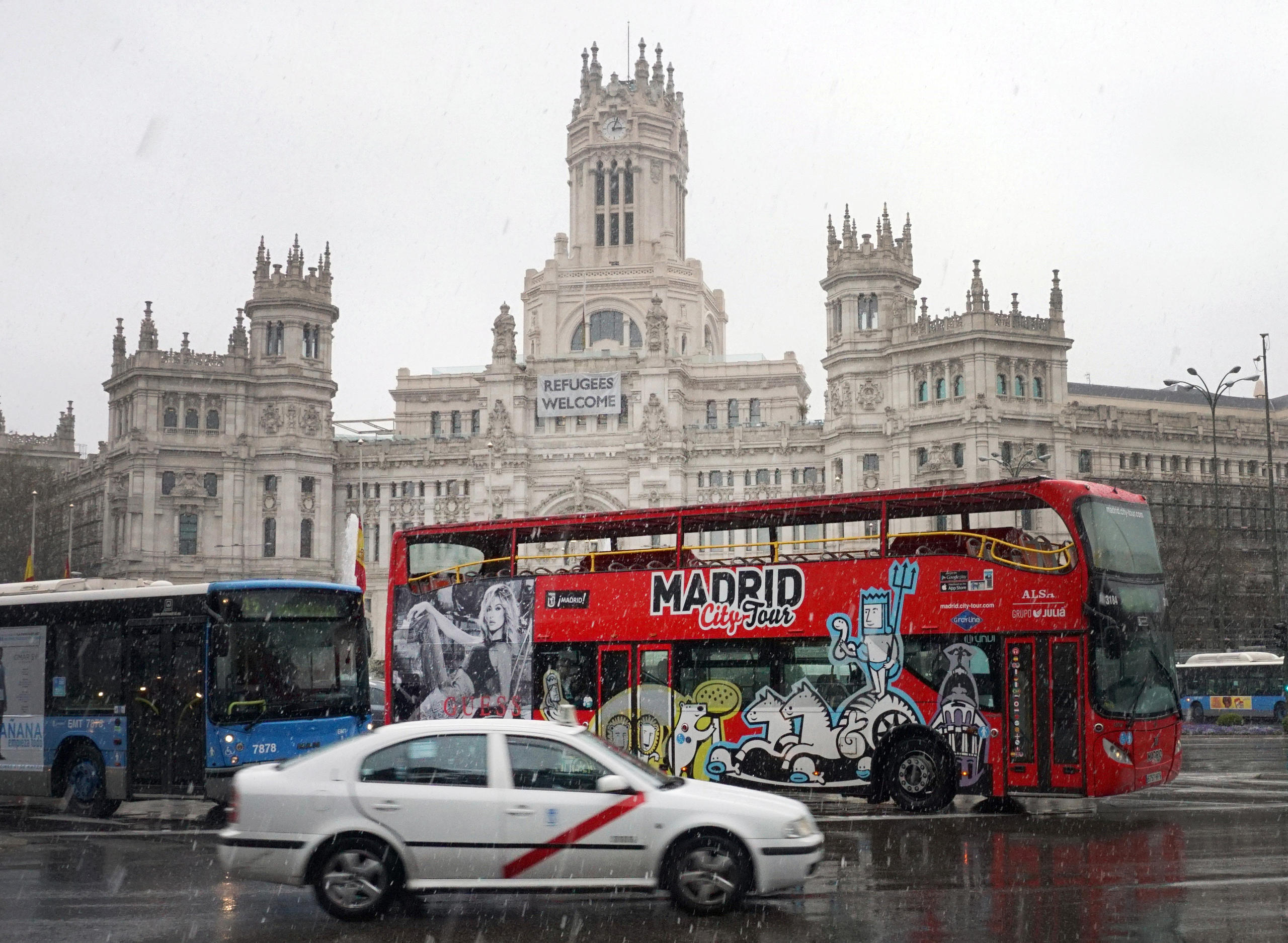


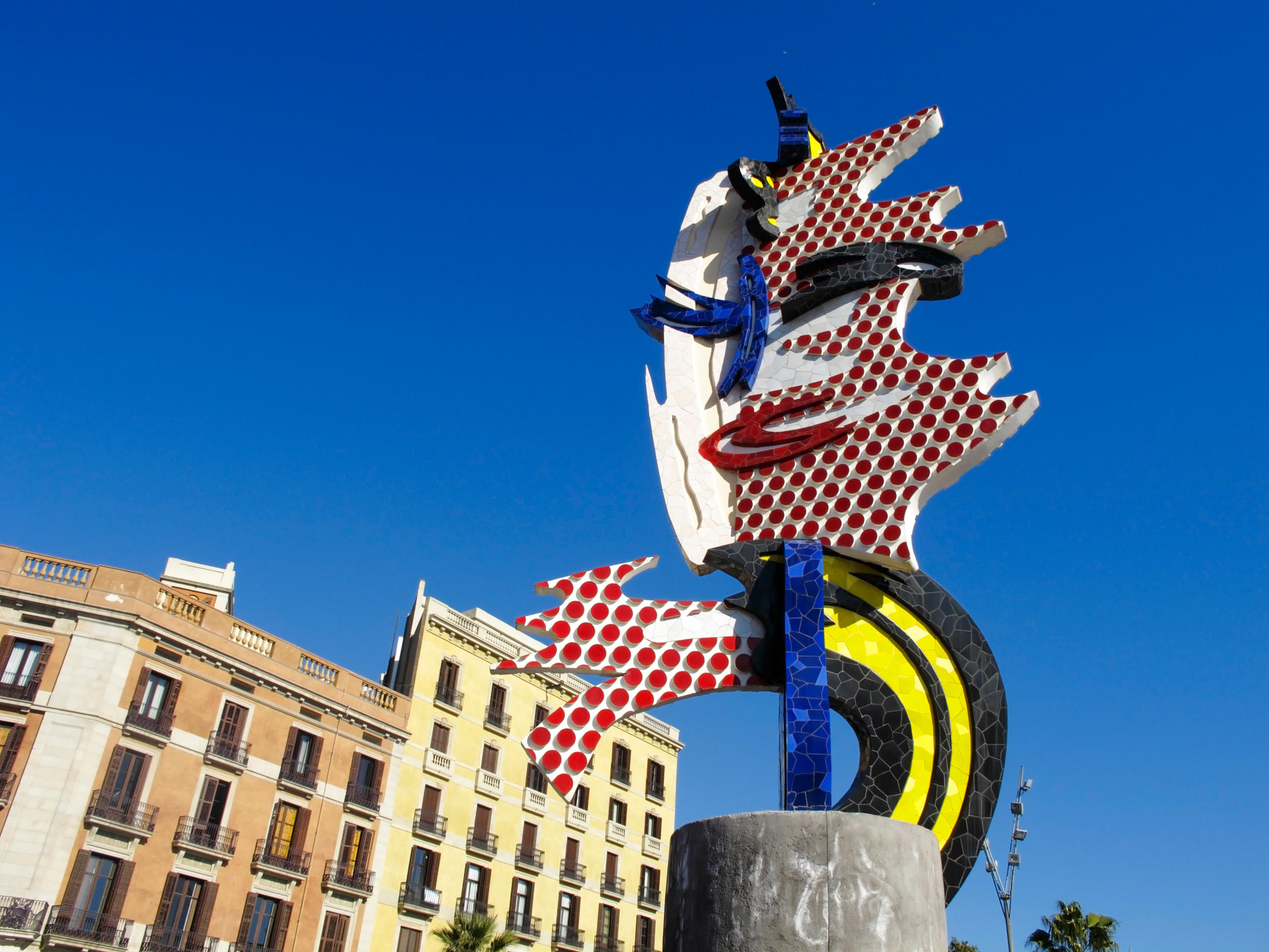
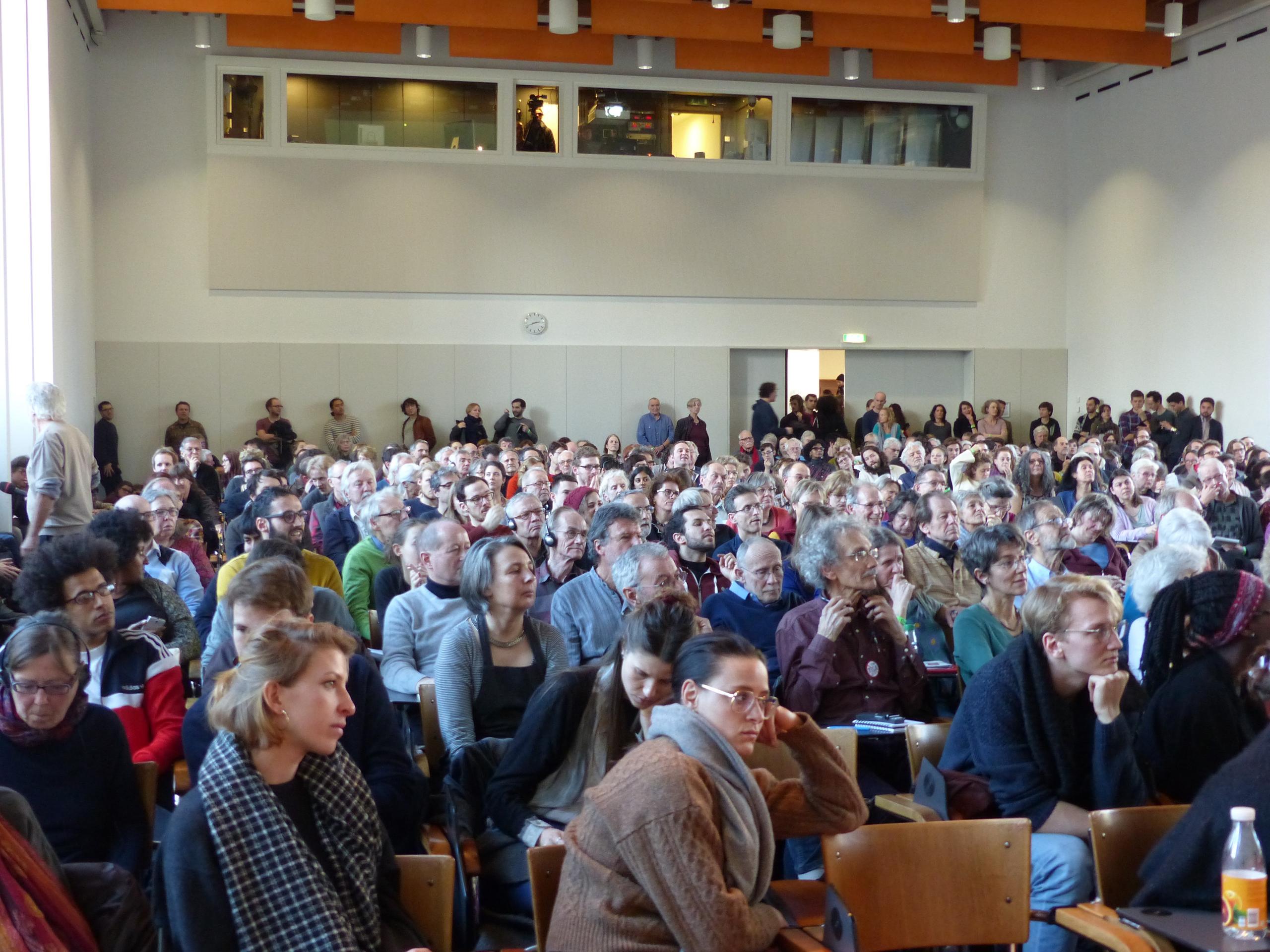
You can find an overview of ongoing debates with our journalists here. Please join us!
If you want to start a conversation about a topic raised in this article or want to report factual errors, email us at english@swissinfo.ch.